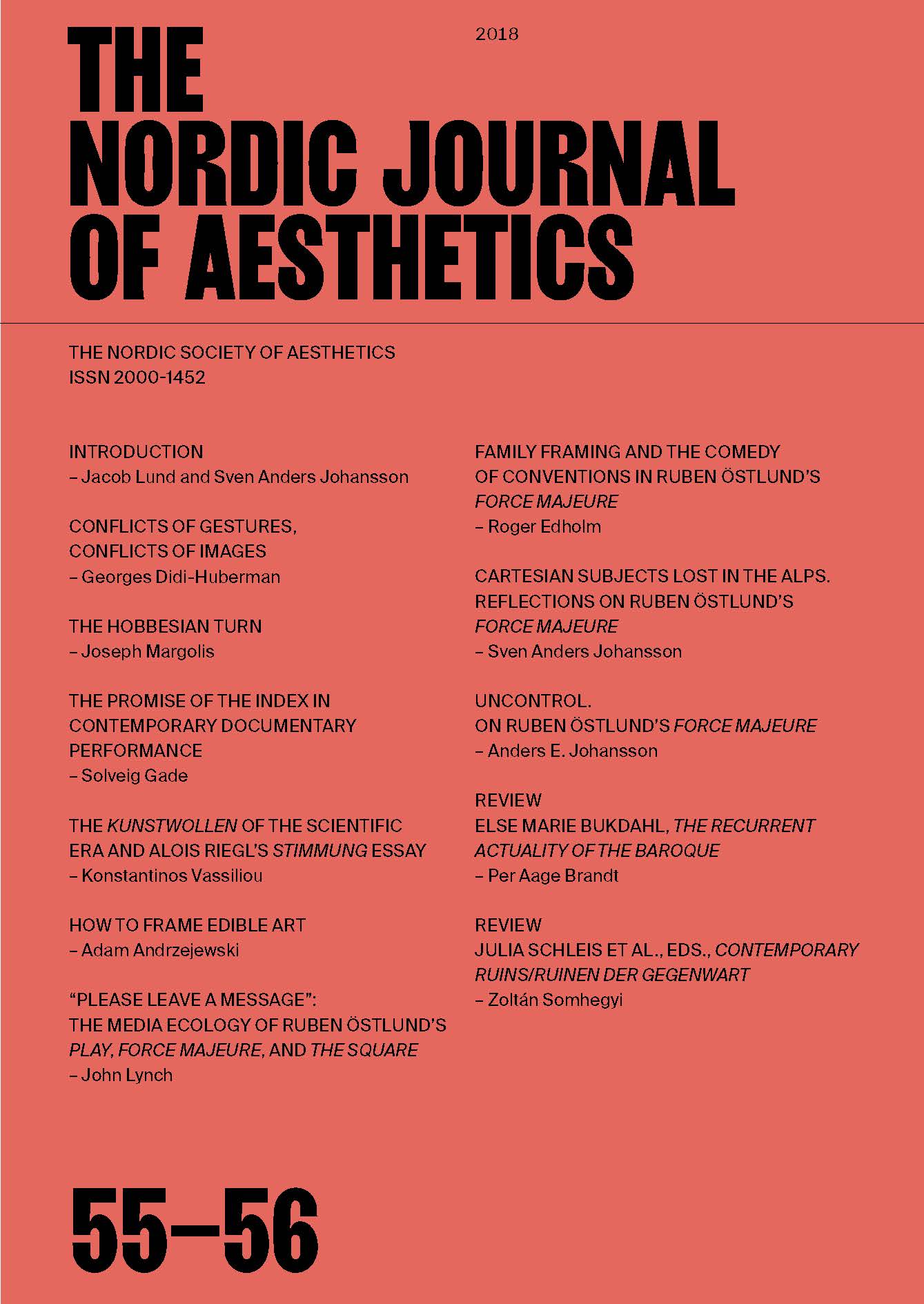“PLEASE LEAVE A MESSAGE”: THE MEDIA ECOLOGY OF RUBEN ÖSTLUND’S PLAY, FORCE MAJEURE, AND THE SQUARE
DOI:
https://doi.org/10.7146/nja.v27i55-56.110729Abstract
This article examines three films by the Swedish director Ruben Östlund: Play (2011), Force Majeure (2014), and The Square (2017). It describes the role of mobile phones in the films, both on the level of content and in terms of aesthetics. Within the films, the failure of the phone to connect the protagonists to significant others is seen as symbolic of an alienation that leads them to points of crisis. Here, the mobile phone works as a device in two ways. First, as a significant communication technology, and second, as a plot contrivance to advance the dramatic conflict. Critically, the mobile phone opens an uncertain space where subjectivity becomes increasingly insecure, precisely as it becomes fundamentally intertwined with it. There is a cinematic tradition of mobilizing this ambiguity to which this process can be connected. Further, the form of these works is considered in relation to the notion of traumatic repetition, and how this expands into the wider contemporary image-culture and the key influence of YouTube within this. Here, the films are considered in relation to the changing dynamic of the public sphere in the light of the mobile recording capabilities, that have come to shape an emergent cinematic aesthetic evident in these films.
Downloads
Published
How to Cite
Issue
Section
License
Authors who publish with this journal agree to the following terms:
- Authors retain copyright and grant the journal right of first publication with the work simultaneously licensed under a Creative Commons Attribution License that allows others to share the work with an acknowledgement of the work's authorship and initial publication in this journal.
- Authors are able to enter into separate, additional contractual arrangements for the non-exclusive distribution of the journal's published version of the work (e.g., post it to an institutional repository or publish it in a book), with an acknowledgement of its initial publication in this journal.
- Authors are permitted and encouraged to post their work online (e.g., in institutional repositories or on their website) prior to and during the submission process, as it can lead to productive exchanges, as well as earlier and greater citation of published work (See The Effect of Open Access).




